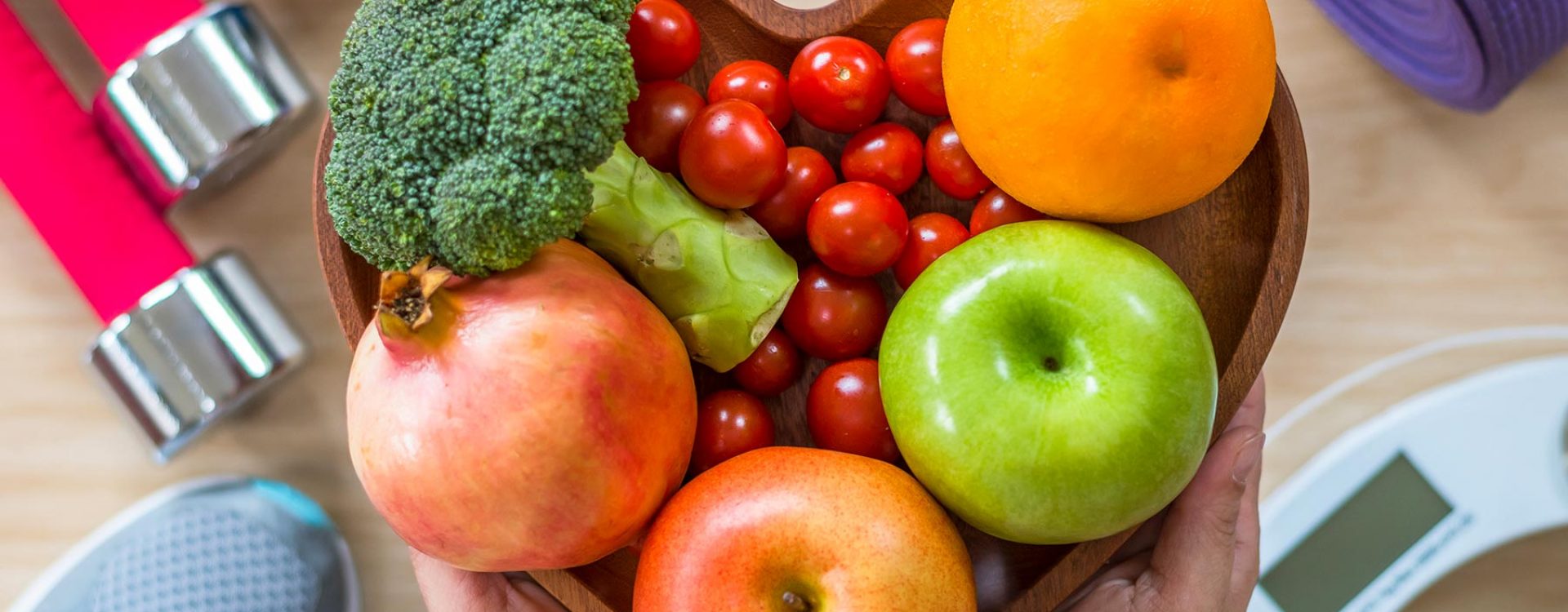Eating well, staying active, reducing stress, and scheduling regular screenings are keys to a heart-healthy lifestyle. Join us in this 28-day challenge to make small steps towards big changes in protecting your heart and reducing your risk of heart disease. Your heart can’t wait to be healthy.
Day #1): Eat more color
- Include another serving (about one cup) of vegetables at lunch or dinner. An easy first step to eating healthy is including fruits and veggies with every meal.
Day #2): Find a workout buddy
- The risk of heart disease doubles in inactive people. Make working out more fun by inviting a friend to exercise with you.
Day #3): Set a bedtime alarm
- Sleep is important to your cardiovascular health. Head to bed with enough time to get a full eight hours of sleep.
Day #4): Calculate your body mass index (BMI)
- The higher your BMI, the higher your risk of heart disease. Learn your body mass index with an easy online calculator.
Day #5): Plan routine check-ups
- To maintain good heart health, see your primary care provider every year for a physical. If you don’t already have an appointment on your calendar, call to schedule one. Find a provider near you at pardeehospital.org/primarycare
Day #6): Swap out sugar
- Instead of dessert, choose a piece of fruit today to help curb your sweet tooth. Check out this blog post to learn more about smart swaps and tips for reducing sugar in your diet.
Day #7): De-stress with your pet
- Take your dog on a walk and play or curl up with your cat. Since stress can negatively impact your heart health, it’s important to find ways to help reduce it.
Day #8): Learn hands-only CPR
- During a heart attack, immediate CPR can double or triple a person’s chance of survival. It’s only two steps to save a life! Click here for video resources from the American Heart Association, or to find a training location near you.
Day #9): Find opportunities to walk
- Use the stairs, park further away, or take a short walk at lunch. If you’re able, try walking five minutes away from your house or your starting point at a local park and then walking back.
Day #10): Know the facts on fats
- Unsaturated fat is found mostly in oils from plants. If you eat unsaturated fat instead of saturated fat, it may help improve your cholesterol levels. Add healthy fat like raw unsalted almonds, avocado, or flax seed to your diet.
Day #11): Share a laugh
- Lessen stress by sharing a funny video or joke that makes you laugh.
Day #12): Get your heart rate up
- Sneak in some extra cardio today by marching in place for three minutes, going up and down the stairs, or skipping rope for a few minutes.
Day #13): Reduce your salt intake
- Eating too much salt can lead to high blood pressure, which is a major factor of heart disease. Sodium is often very high in bread, cold cuts, frozen dinners, and fast food. Today, choose a healthy snack with less than 200 mg of sodium per serving.
Day #14): Have a happy heart
- Happiness helps lower heart disease risk, so kiss your sweetheart, hug a friend, or perform a random act of kindness today.
Day #15): Know your numbers
- A cholesterol test is a blood test that measures the amount of each type of cholesterol and certain fats in your blood. Too much LDL cholesterol in your blood may put you at risk for heart disease and other serious conditions. Get your cholesterol tested today and learn more about cholesterol numbers.
Day #16): Stop smoking
- Did you know that smokers are six times more likely to suffer heart attacks? Take the step to stop smoking or support a friend. Smoking increases your risk of heart disease and lung cancer. To quit smoking, talk to your doctor or visit smokefree.gov. Even if you’ve tried to quit in the past, try again – your body will experience almost immediate benefits.
Day #17): Challenge yourself
- Take the time today to do more exercises that help get your heart rate up. Drop and give me ten push-ups!
Day #18): Know your history
- Call a few relatives and ask about your family health history.
Day #19): Go meatless
- Try going meatless today with all plant-based proteins and nutrients, or switch to more heart-healthy alternatives for your meals.
Day #20): Get creative
- To help decrease stress, try drawing, coloring, or painting a picture. If art isn’t your thing, make time for the calming hobby of your choice today.
Day #21): Work in a workout
- Do one minute of squats or jumping jacks. Start mixing in more opportunities to stretch and move your body every day.
Day #22): Cut caffeine and cocktails
- Start reducing your caffeine and alcohol intake for a healthier heart. Drinking too much alcohol can harm your heart by increasing your blood pressure and cholesterol. If you choose to consume alcohol, have no more than one drink per day if you’re a woman and no more than two drinks per day if you’re a man.
Day #23): Get better sleep
- Start with a relaxing bedtime routine. Try five to ten minutes stretching, doing yoga, meditating, or taking slow, deep breaths before bed.
Day #24): Dance break!
- Have a five-minute dance party in your living room. It’s fun and relieves stress.
Day #25): Check your pressure
- One in three Americans have high blood pressure. It’s important to have it checked regularly, starting at age 18. Check out this blog post to learn more about why you should care about your blood pressure.
Day #26): Go green
- Add leafy greens to a meal or eat a vegetable you haven’t tried.
Day #27): Show gratitude
- Put stress into perspective: write down ten things you’re grateful for. You can even start a gratitude journal and write down your thankful thoughts daily.
Day #28): Aim for exercise
- Try to work in 30 minutes of exercise today. If you already exercise regularly, challenge yourself with a new class or take your routine outdoors.




